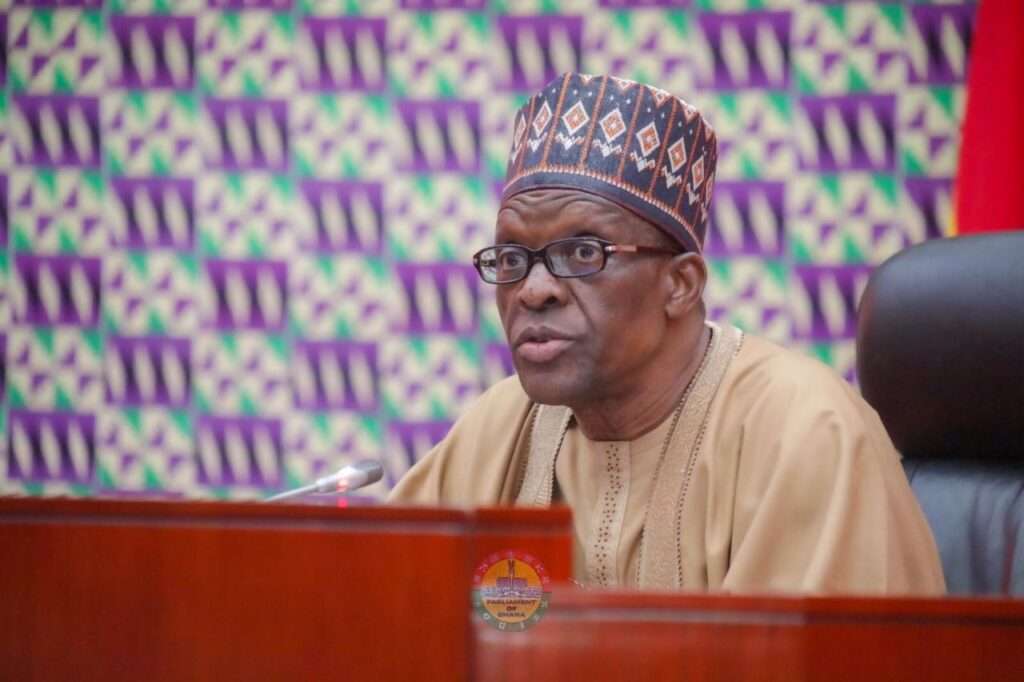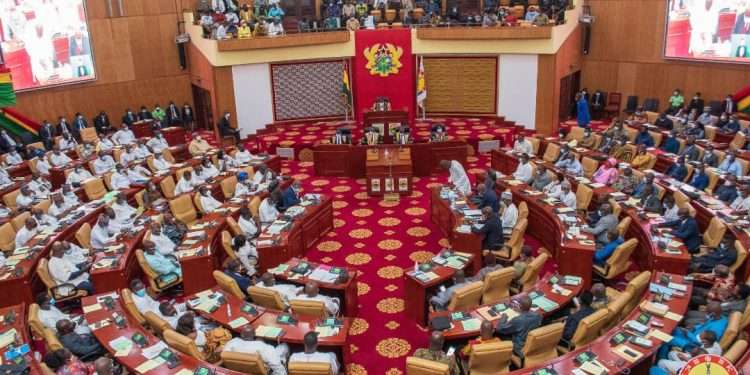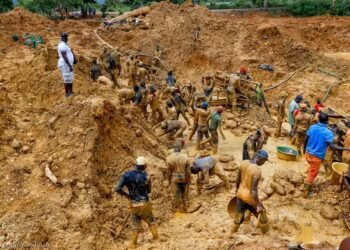Parliamentary Network Africa (PNAfrica), an influential civil society organization advocating for transparency and accountability in African parliaments, has expressed alarm over the prolonged gridlock in Ghana’s Parliament.
The impasse, which has led to the indefinite adjournment of parliamentary sittings twice in recent weeks, underscores a deep divide within the legislative body.
Despite numerous calls for compromise, Parliament has been unable to reconvene effectively since the first adjournment on October 22 and the second on November 7, sparking concerns about the institution’s effectiveness and its broader implications for Ghana’s governance.
The two adjournments, occurring amidst intense partisan disagreements, have halted legislative activities and stalled critical national issues.
PNAfrica issued a strong statement, saying, “The continued failure of Parliament to meet its legislative responsibilities is not only a disservice to the Ghanaian people but also a significant waste of public resources.”
The organization’s statement reflects the sentiments of many citizens who see the legislative stalemate as emblematic of Ghana’s polarized political climate.
The current deadlock in Parliament has led to significant financial ramifications. Every parliamentary session involves substantial public expenditure, covering logistics, security, and the temporary rental of facilities as the main chamber undergoes renovations.
With each adjournment, the financial burden on Ghanaian taxpayers increases, yet little to no legislative progress has been achieved.
This “avoidable financial burden,” as PNAfrica terms it, is drawing increasing criticism from taxpayers who expect Parliament to prioritize efficient decision-making and stewardship of public funds.
The Speaker of Parliament, Rt. Hon. Alban Sumana Bagbin, and the leaders of the New Patriotic Party (NPP) and the National Democratic Congress (NDC) caucuses have faced growing pressure to prioritize national interests over partisan loyalties.
According to PNAfrica, these leaders bear the responsibility to bridge divides, as the ongoing deadlock “is extremely disappointing” and undermines Parliament’s role as the highest forum for national discourse.
“It is essential that a compromise be reached. Allowing Parliament to resume sittings and continue its important work while awaiting the Supreme Court’s interpretation of the contentious provisions in Article 97(1)(g) and (h).”
Parliamentary Network Africa (PNAfrica)
External Intervention: A Path to Resolution

Recognizing the potential challenges in achieving consensus through internal dialogue, PNAfrica suggested that third-party mediation might be necessary.
The organization proposed involving the Council of State, an advisory body that provides guidance on constitutional matters and other national issues.
An external, impartial body could provide “an impartial perspective” and help establish a framework for resuming parliamentary activities without further delay. This intervention, according to PNAfrica, would serve as a practical solution should internal negotiations fall short.
PNAfrica highlighted the potential role of Rt. Hon. Bagbin in mediating a resolution, pointing to his extensive experience within the legislative body. His leadership, they argued, could pave the way for constructive negotiations, ensuring that Parliament’s agenda aligns with national priorities.
PNAfrica called on him to “take the lead in resolving the deadlock,” underscoring his ability to facilitate dialogue and find common ground.
As part of this mediation effort, PNAfrica has called on the leaders of both the NPP and NDC parliamentary caucuses, Mr. Alexander Kwamena Afenyo-Markin and Dr. Cassiel Ato Forson, respectively, to place the nation’s interests above party agendas.
“We expect all parties to cooperate with the Speaker and any external bodies engaged in the process to bring about a lasting solution,” PNAfrica urged. Cooperation, they stressed, is critical to reinvigorating Parliament and ensuring that the legislative body can effectively carry out its mandate.
The ongoing impasse has not only stalled Parliament’s legislative functions but has also eroded public confidence in Ghana’s political institutions. Citizens are becoming increasingly disillusioned with Parliament’s seeming inability to overcome partisan rifts, with some viewing it as a reflection of a larger political malaise.
Observers note that the persistent gridlock could impact Parliament’s credibility and its capacity to serve as a check on the executive branch, further weakening the country’s democratic governance.
“It is critical that Ghana’s Parliament works together to resolve this impasse swiftly, not only to avoid further unnecessary costs but also to ensure the proper functioning of the legislative body for the benefit of all Ghanaians.”
Parliamentary Network Africa (PNAfrica)
The call to action from PNAfrica has underscored the importance of compromise, collaboration, and constructive dialogue in the face of Ghana’s current parliamentary challenges.
The resolution of this impasse will be a test not only of Ghana’s parliamentary resilience but also of the country’s commitment to democratic principles in times of political discord.
READ ALSO: Ghana’s Oil Production Declines Sharply Despite Recent Optimistic Reports



















